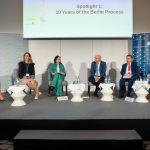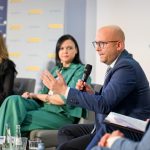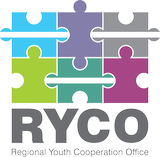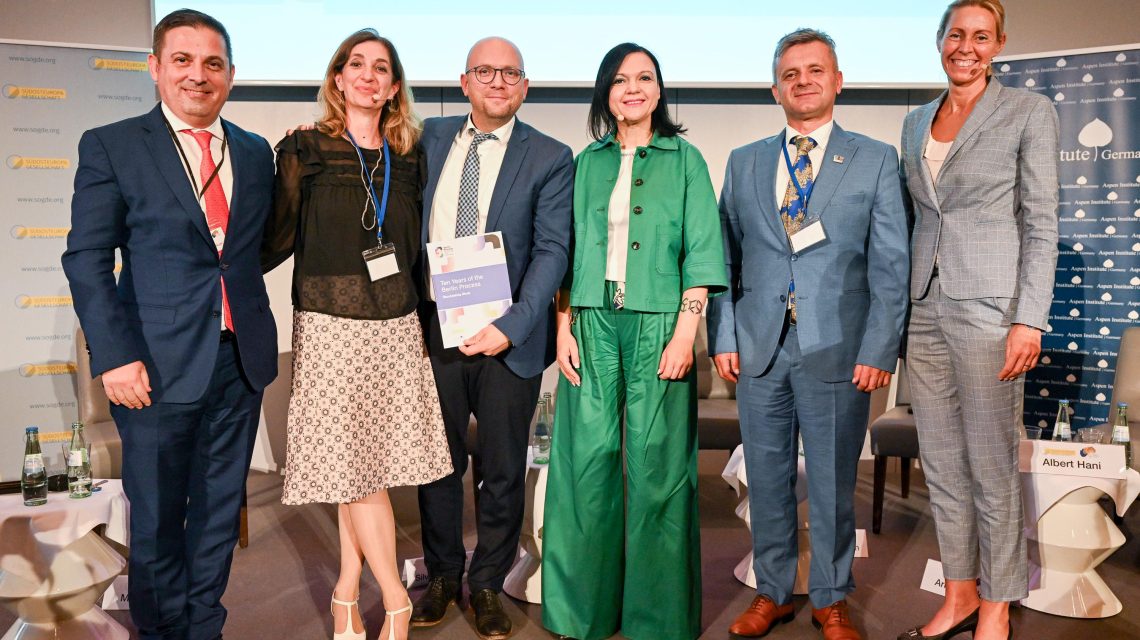In response to an invitation from the Aspen Institute and the Southeast Europe Association, our Secretary-General, Mr. Albert Hani, participated in the Civil Society Forum held in Berlin today. This forum serves as a side event to the Berlin Process, bringing together prominent civil society organizations from the Western Balkans that actively contribute to the process’s outcomes.
During his speech at the first panel, titled “10 Years of the Berlin Process: Milestones, Successes, and Civil Society,” Mr. Albert Hani commended the “Mapping Study” prepared and presented by the Aspen Institute and the Southeast Europe Association during the CSO Forum in Berlin. He also shared RYCO’s experiences, including successes, achievements, and challenges encountered during the Berlin Process. Mr. Hani particularly emphasized the importance of translating leaders’ commitments into tangible actions and progress on the ground.
The highly engaging and constructive panel, moderated by Ms. Stormy-Anika Mildner of the Aspen Institute, facilitated a lively discussion among the esteemed panelists: Mr. Manuel Sarrazin from the German Ministry of Foreign Affairs, Mr. Arman Skrapi from the Albanian MFA, and Mr. Albert Hani from RYCO. Additionally, Ms. Silvana Mojsovska and Ms. Marika Djolai, researchers who conducted the “Mapping Study on the Berlin Process,” presented their key recommendations and were invited to comment on them during the discussions.
Our Secretary-General, Mr. Hani, began his intervention by stating, “The Berlin Process is a noble initiative that aims to promote compassion and mutual respect, helping divided societies heal from past conflicts and creating a better, more prosperous future for Western Balkan countries within the European family.” He also highlighted the importance of local ownership of the Berlin Process, particularly in the segment of reconciliation, as well as the role of civil society organizations in promoting values that foster regional cooperation among Western Balkan leaders.
The Q&A session provided an opportunity for the audience to actively participate in the discussion. This segment focused primarily on the significance of reconciliation and the responsibility of governments to engage more deeply in the process. Additionally, challenges encountered by regional initiatives in the course of their work were addressed
.





